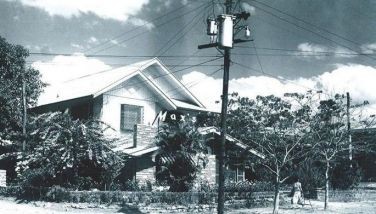Vote buying

This is a pernicious practice prevalent every election especially during the campaign period, or on Election Day itself when the voters are about to enter the polling booth. Everybody knows about it but nobody can prove it simply because like any other illegal operation, it is usually done clandestinely. Indeed, this is one offense where the victims (voters) have to cooperate with the offenders (vote-buyers) in order to consummate the act. And so, when it is already a done deal the voters cannot really denounce and file a complaint against the vote buyers because they may also be held liable for accepting the money.
On the other hand, if voters refuse the attempt to buy their votes in order to report the illegal act, their allegations cannot be substantiated since no money actually changes hands. So the offender or vote buyer will just simply deny the charge and the case may eventually be dismissed for lack of proof to establish the accusation. This is the main reason why vote buying has become so rampant and is sometimes committed with impunity.
Usually, vote buying is committed by candidates. Nowadays however, even non-candidates, or those merely campaigning for some candidates commit them openly. Most notable but quite dismaying is that one recently reported in the papers committed by no less than Kris Aquino, the celebrity-sister of P-Noy himself. While campaigning in Cebu for her three favorite senatorial candidates, she candidly told the press that she paid the taxi driver P1,000 for agreeing to vote for her candidates. With such admission, an ordinary citizen could have already been charged and investigated for vote buying even if it is not under oath. But in this case, the Comelec Chief himself hesitated to act even if, according to him, it “would appear†that vote buying may have actually been committed. He even took up the cudgels for Kris by pointing out that it may have been done in good faith, the way he “looks at itâ€. He should have known however that good faith is not a defense here because the act itself is punishable by law and is therefore illegal per se, regardless of the motive of the offender.
To be sure, Kris may really believe that she has done nothing illegal as she has not been properly advised about the law or that only candidates may be held liable for it and that it is already an accepted practice especially for non-candidates like her. Or as explained by Malacanang itself, it was only made as payment for the services of the taxi driver in a gesture of magnanimity. Nevertheless, it would have been a great boost to the drive against vote buying if Comelec had investigated the case and acted in due course of law, instead of showing such special treatment. Comelec’s seemingly “special treatment†of this case not only shows that we still have a double standard of justice in our land especially under the matuwid na daan of this administration. Moreover such stance also rendered a big blow to the war against vote buying. It will be used as a precedent and raised as a defense by those similarly committing such act. Vote buying will thus become more rampant.
Obviously Comelec is becoming more and more helpless and clueless in solving this problem. Even its latest move banning withdrawals of more than P100,000 and prohibiting the carrying or possession of P500,000 cash, five days before the election, seem to be useless and even ridiculous. In fact it may even violate the peoples’ right to their private property and seriously affect ordinary commerce and trade. The only way it could enforce the prohibition on the possession and carrying of P500,000 cash is by means of checkpoints. But people manning the check points are not allowed to search and seize without warrant. So it is quite impossible to catch violators of these rule especially vote buying candidates who will definitely not display their money.
Actually, there is another form of vote buying even on a larger scale which the Comelec should be more concerned about. And these are the political ads aired on TV and radio by the candidates. Indeed this is another form of indirect vote buying as candidates spend billions of pesos to get the peoples’ vote. In effect, the candidates here are using media to buy the votes of the people, except that the money is not given to the voters but to the newspaper publishers and radio/TV stations. Every election, the amounts spent for these political ads grow as the rates of the publications increase. Comelec should therefore concentrate more on prosecuting and disqualifying candidates who spend beyond the limits allowed by law.
But even if the Comelec seem to be helpless and unable to check it, vote buying can still be stopped. And Comelec has nothing to do with it. Only the voters can do it. They can allow the candidates or their campaigners to buy their votes but not vote for them. Voters should be made aware that candidates who buy votes or spend lots of money to win elections will certainly rob them of their taxes to recover all their expenses once in office. So voters should ensure their loss but not voting for them even if they buy their votes. Sooner or later candidates will no longer buy votes because of the realization that buying votes does not ensure victory at the polls.
* * *
Email: attyjosesison@gmail.com
- Latest
- Trending






















